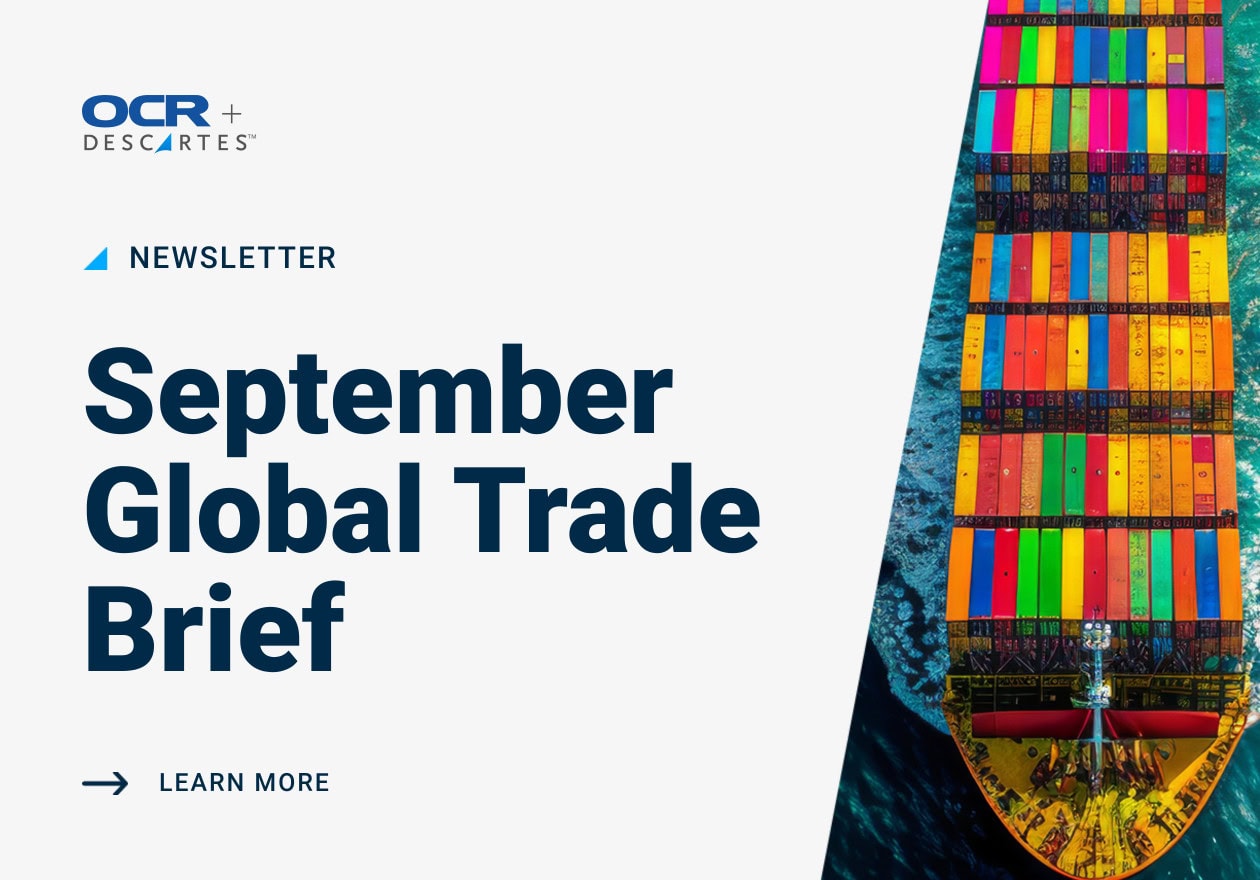Treasury Hardens Sanctions With 130 New Russian Evasion and Military-Industrial Targets
OFAC continues to disrupt the networks and channels through which Russia attempts to sustain its beleaguered military. These sanctions focus on individuals and entities abetting Russia’s unconscionable war against Ukraine by providing Russia with much-needed technology and equipment from third countries. Additionally, these actions take aim at Russia’s domestic industrial base, which is seeking to reinvent itself as the maintainer of Russia’s war machine. With these designations, Treasury is disrupting producers, exporters, and importers of nearly all of the high-priority items identified by the international coalition imposing sanctions and export controls on Russia.
Unable to domestically produce much of the technology, equipment, and other materiel it needs to sustain and maintain its military-industrial complex, Russia has offshored that production, relying on third-country suppliers to acquire the goods it needs. Russia continues to exploit otherwise legitimate economic relationships with the People’s Republic of China (PRC), Türkiye, and the United Arab Emirates (the UAE), which have become hubs for exporting, reexporting, and transshipping to Russia foreign-made technology and equipment. Treasury continues to work with partners to prevent further Russian sanctions evasion and export control violations through their jurisdictions. Recent actions taken—particularly by the UAE—are encouraging, and the U.S. looks forward to working with partners to verify that Russia is no longer able to exploit their jurisdictions.
Entities based in the PRC, Türkiye, and the UAE continue to send high-priority dual-use goods to Russia, including critical components that Russia relies on for its weapons systems (“high-priority goods”). While Treasury will continue to work with the Governments of the PRC, Türkiye, and the UAE to address potential sanctions and export control vulnerabilities together in the spirit of bilateral cooperation, Treasury will not hesitate to take action to prevent Russia from using the U.S. and international financial systems to sustain its war of aggression against Ukraine.
Source: https://home.treasury.gov/news/press-releases/jy1871
Commerce adds 13 entities to the Entity List for aiding Russia’s illegal War in Ukraine
BIS released for publication in the Federal Register a final rule amending the Export Administration Regulations (EAR) by adding 13 entities to the “entity list” under the destinations of Russia (12) and Uzbekistan (1).
The entities have been determined by the U.S. government to be acting contrary to the national security or foreign policy interests of the United States.
U.S. company agrees to remit $206,000 to settle various sanctions violations
OFAC announced a settlement with daVinci Payments (daVinci), which manages prepaid reward card programs. DaVinci agreed to remit $206,213 to settle its potential civil liability for apparent violations of sanctions on Crimea, Iran, Syria, and Cuba. Between November 15, 2017 and July 27, 2022, daVinci enabled reward cards to be redeemed from persons in sanctioned jurisdictions. The settlement amount reflects OFAC’s determination that daVinci’s conduct was non-egregious and voluntarily self-disclosed.
Source: https://ofac.treasury.gov/recent-actions/20231106
New suspicious activity report (SAR) key term for reporting evasion of U.S. export controls
The U.S. Department of the Treasury’s Financial Crimes Enforcement Network (FinCEN) and the U.S. Department of Commerce’s Bureau of Industry and Security (BIS) have previously issued two joint alerts urging financial institutions to be vigilant against efforts by individuals or entities to evade Russia-related export controls administered by BIS. Today, building on the success of those prior alerts in generating suspicious activity reporting, FinCEN and BIS are issuing a new SAR key term to support financial institutions in reporting potential efforts to evade U.S. export controls beyond the Russia-related circumstances that were the focus of those prior two alerts.
Financial institutions should continue to use the key term “FIN-2022RUSSIABIS” when filing SARs related to potential Russia-related export control evasion. This Notice, which applies to export control evasion occurring in support of other nation-state adversaries and illicit actors globally, provides U.S. financial institutions with red flags to assist them in identifying transactions potentially tied to the illicit acquisition of items subject to the Export Administration Regulations (EAR), including, for example, advanced technologies that can be used in new or novel ways to enhance adversaries’ military capabilities or support mass surveillance programs that enable human rights abuses.
United States and United Kingdom Take Coordinated Action Against Hamas Leaders and Financiers
U.S. Department of the Treasury’s Office of Foreign Assets Control (OFAC) imposed its third round of sanctions targeting Hamas-affiliated individuals and entities since the October 7 Hamas terrorist attacks on Israel. This action designates key Hamas officials and the mechanisms by which Iran provides support to Hamas and Palestinian Islamic Jihad (PIJ). Today’s designations are coordinated with action by the U.K. and are aimed at protecting the international financial system from abuse by Hamas and their enablers. The U.S. Department of State is concurrently designating a leader of PIJ’s military wing.
Click here for more information on the individuals and entities designated today.
Source: https://home.treasury.gov/news/press-releases/jy1907
U.S. sanctions on maritime companies, vessels transporting Russian oil sold above price cap
The U.S. Department of the Treasury’s Office of Foreign Assets Control (OFAC) is imposing sanctions on three entities and identifying as blocked property three vessels that used Price Cap Coalition service providers while carrying Russian crude oil above the Coalition-agreed price cap. This action underscores Treasury’s commitment, alongside its international partners, to responsibly reducing oil revenues that the Russian government can use to bankroll its brutal invasion of Ukraine.
The United States is part of an international coalition of countries (the Price Cap Coalition), including the G7, the European Union, and Australia, that have agreed to prohibit the import of crude oil and petroleum products of Russian Federation origin. These countries, home to many best-in-class financial and professional services, have also agreed to restrict a broad range of services related to the maritime transport of crude oil and petroleum products of Russian Federation origin—unless that oil is bought and sold at or below the specific price caps established by the Coalition or is authorized by a license. This policy is known as the “price cap.” The price cap is intended to maintain a reliable supply of crude oil and petroleum products to the global market while reducing the revenues the Russian Federation earns from oil after its own war of choice against Ukraine inflated global energy prices.
The crude oil price cap took effect in December 2022 with a cap on Russian crude oil at $60 per barrel. The vessels Kazan, Ligovsky Prospect, and NS Century engaged in the export of Russian crude oil priced above $60 per barrel after the crude oil price cap took effect. The Kazan, Ligovsky Prospect, and NS Century used U.S.-person services while transporting the Russian-origin crude oil.
United Arab Emirates-based (UAE-based) Kazan Shipping Incorporated (Kazan Shipping) is the registered owner of the Kazan.
UAE-based Progress Shipping Company Limited (Progress Shipping) is the registered owner of the Ligovsky Prospect.
UAE-based Gallion Navigation Incorporated (Gallion Navigation) is the registered owner of the NS Century.
Kazan Shipping, Progress Shipping, and Gallion Navigation were designated pursuant to Executive Order 14024 for operating or having operated in the marine sector of the Russian Federation economy. OFAC also identified the Kazan, Ligovsky Prospect, and NS Century as property in which Kazan Shipping, Progress Shipping, and Gallion Navigation, respectively, have an interest.
As a result of today’s action, all property and interests in property of the persons above that are in the United States or in the possession or control of U.S. persons are blocked and must be reported to OFAC. In addition, any entities that are owned, directly or indirectly, 50 percent or more by one or more blocked persons are also blocked. All transactions by U.S. persons or within (or transiting) the United States that involve any property or interests in property of designated or blocked persons are prohibited unless authorized by a general or specific license issued by OFAC, or exempt. These prohibitions include the making of any contribution or provision of funds, goods, or services by, to, or for the benefit of any blocked person and the receipt of any contribution or provision of funds, goods, or services from any such person.
Source: https://home.treasury.gov/news/press-releases/jy1915



